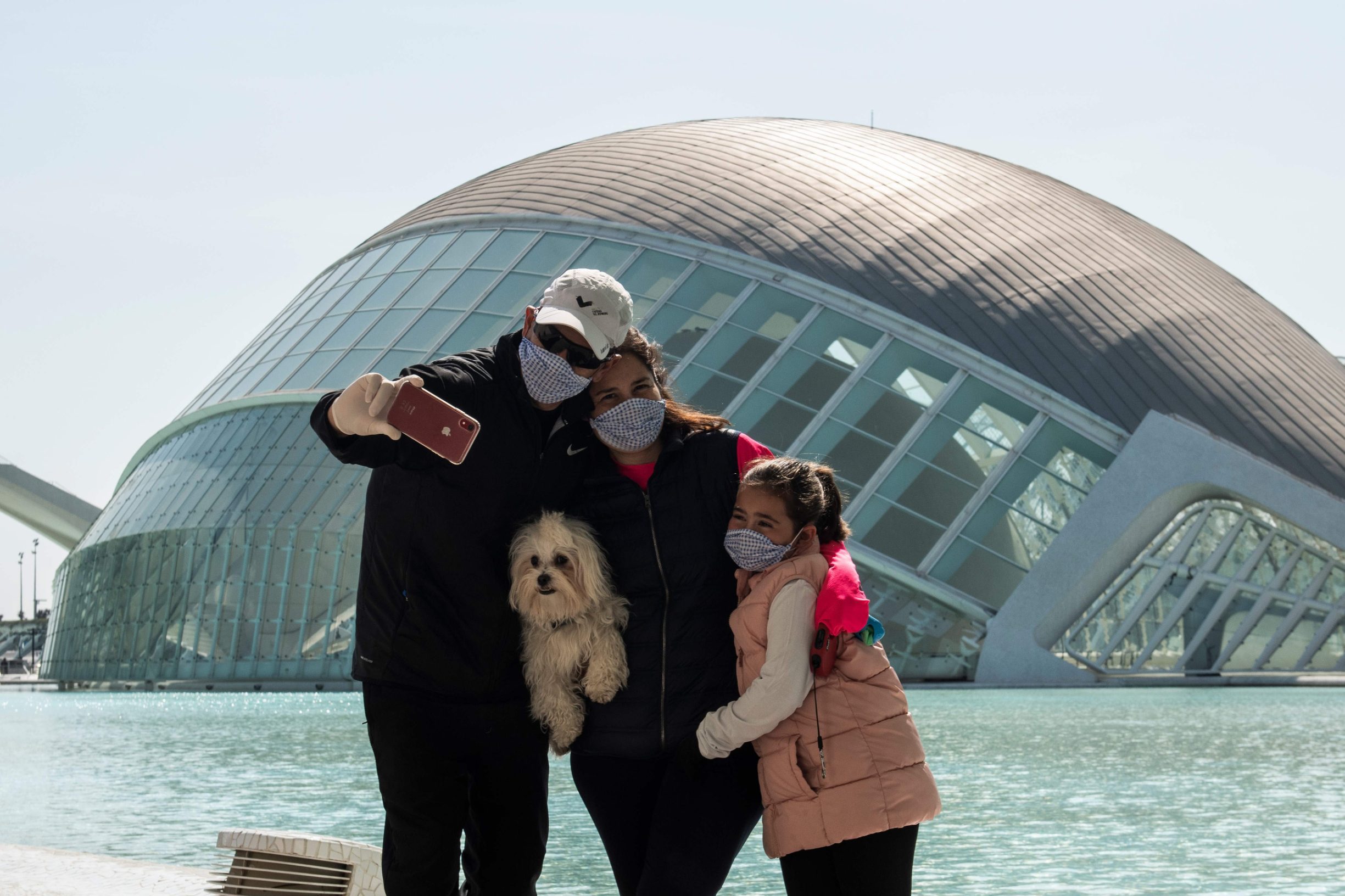
We European citizens are worried and scared by this threat; and even more by the cacophony, selfishness and self-destructive short-sightedness of the different, un-coordinated national responses; by the lack of foresight of our national leaders, who pretend not to know that our interdependence requires a single European answer with strict containment measures of the pandemics, and an EU-wide plan to re-start the European economy afterwards.
We European citizens denounce that the current EU is an incomplete Res Publica, thus ill-equipped to face this challenge, with little competences and powers to face the pandemics. We welcome the timely decision by the Commission to provide 25 billion euro and financial flexibility to cope with this threat. Maybe it’s the most it can do, but it is not enough.
We call upon the European Commission and Parliament to propose, and on the national governments to adopt (starting with the Eurogroup meeting of March 16, and a following extraordinary European Council to be called soon after) the following urgent measures, also using the Lisbon Treaty passerelle clause and simplified Treaty revision provisions:
1. Make public health and contrast to epidemics a shared competence of the EU, subject to the ordinary legislative procedure, and provide the Commission with extraordinary powers to coordinate the response to the epidemics, as a federal government should do.
2. Enlarge the scope of the European Stability Mechanism to finance the immediate strengthening of the European and national health systems to cope with the pandemics, which threatens the lives of European citizens, and thus also the economic and financial stability of the EU.
3. Abolish the compulsory balanced budget provision for the EU and create a EU Safe Asset to be issued to finance an EU-wide plan to promote the EU economic recovery and social cohesion during and after the emergency.
4. Move fiscal issues to the ordinary legislative procedure and provide the EU with fiscal powers to adopt new own resources – such as the carbon tax (and carbon tariffs), the digital tax, the financial transaction tax – to finance the EU budget (or the Euro-area Budgetary Instrument, if the decision could be reached only at the Euro-area level).
5. Immediately approve the next Multiannual Financial Framework increasing the budget to at least 1,3% of the EU GDP, as requested by the European Parliament, on the basis of the current structure of the budget financing; and with the provision to reach 2% with the new own resources, to ensure the provision of crucial EU-wide public goods.
6. Turn the planned Conference on the future of Europe into a fully-fledged European Convention to draft a new Constitutional Pact among the EU citizens and Member states.
We European citizens believe this is the defining hour for the EU. Social perception of the EU will be shaped for years by its response to this crisis. This is the time to prove the EU is a community of values with a shared destiny, the life-line for its citizens and member states in the face of a turbulent global world with political, economic and health threats. It’s time for bold common steps to overcome fear. It’s time for European unity, not for national division.
All citizens are invited to sign this Appeal, available in many languages here.
It was promoted by philosophers Roberto Castaldi and Daniel Innerarity and signed by over 400 personalities from academia, civil society, business community, institutions from all over the EU, and even from countries still outside it.
Among the signatories are some of the most prominent European academics of their fields, relevant figures from civil society, many of whom had relevant roles in institutions, including former President of the European Parliament, Commissioners, national ministers, central bankers, members of the European and National Parliaments, etc.
Here is a provisional list:
Alberto Alemanno, Haute Ecole Commerciale Paris, the Good Lobby
Daniele Archibugi, Acting Director, IRPPS - Italian National Research Council
Enrique Baron Crespo, Chair Jean Monnet ad personam, Former President European Parliament
Vitor Bento, Instituto Superior de Ciências Sociais e Políticas Universidade de Lisboa; former central banker (see https://en.wikipedia.org/wiki/V%C3%ADtor_Bento)
Tito Boeri, President Triennale di Milano; Full professor Urbanistica Politecnico di Milano
Pierre Brunet, Directeur du Département des Masters de Droit public de l'Ecole de droit de la Sorbonne
Maria Chiara Carrozza, Scuola Superiore Sant’Anna di Pisa, former Rector, former Italian Minister of Education, University and Research
Innocenzo Cipolletta, President Assonime, former director general of Confindustria (Association of Italian Business)
Carlos Closa, European University Institute, former Director of the European, Transnational and Global Governance research area; former Deputy Director at the Centre for Political and Constitutional Studies (CEPC) in Madrid, and member of the Venice Commission for Democracy through Law of the Council of Europe
Anna Diamantopoulou, President To Diktio, former Greek Minister and European Commissioner
Rafał Dymek, President Polska Fundacja Robert Schuman
Sergio Fabbrini, Director School of Government at Luiss University
Piero Fassino, President Centro Studi di Politica Internazionale; Vice President Foreign Affairs Committe of the Chamber of Deputies in Italy;
Elsa Fornero, University of Turin, Scientific Coordinator of CeRP - Collegio Carlo Alberto, Vice President of SHARE and Research Fellow of IZA and Netspar, Former Italian Minister of Labour and Social Policies
John Erik Fossum, Arena Center for European Studies, Oslo
Mahmoud Gebril, former Prime Minister of Lybia
Sandro Gozi, Member of the European Parliament, President of the Union of European Federalists, former Under-secretary of state for European Policies
Aldo Kaslowski, Chairman of Organik holding, former Vice-President of Tusiad (Association of Turkish Business)
Guillaume Klossa, writer, founder of EuropaNova and Civico Europa, Sherpa to the reflection group on the future of Europe 2020-2030, former President of the European Broadcasting Union
Anna Krasteva, New Bulgarian University and CERMES, editor-in-chief of Journal Southeastern Europe
Peter Jambrek, President of the New University, Slovenia
Jo Leinen, Former MEP, former President of the Spinelli Group, the European Movement International, the Union of European Federalists
Francesca Longo, President Società Italiana di Scienza Politica
Paolo Magri, Director Istituto per gli Studi di Politica Internazionali (ISPI)
Sylwia Majkowska-Szulc, University of Gdańsk, Secretary of the Board of the Polish Association of European Law
Fabio Masini, University of Rome 3, Co-director International Centre for European and Global Governance (CesUE)
Giovanni Moro, Chairman of Cittandinanza Attiva
Ferdinando Nelli Feroci, President Istituto Affari Internazionali, former European Commissioner for Industry and Entrepreneurship
Kalypso Nicolaidis, Professor of International Relations at the University of Oxford
Claus Offe, Hertie School of Governance in Berlin
Gianfranco Pasquino, University of Bologna, Johns Hopkins Bologna Center and Fellow of the Accademia dei Lincei
Otto Pfersfmann, Directeur d’Etudes Ecoles des Hautes Etudes en Sciences Sociales / Lier-FYT Paris
Mikolaj Pietrzak, Dean of the Warsaw Bar Association of Advocates
Gaetano Quagliarello, Luiss University, Senator
Dimitrij Rupel, Nova univerza Ljubljana; former Foreign Minister of Slovenia (1990-1993, 2000-2008)
Saskia Sassen, Robert S. Lynd Professor of Sociology at Columbia University and a Member of its Committee on Global Thought, which she chaired till 2015
Giuseppe Scognamiglio, Chairman East-West European Institute
Richard Sennett, OBE FBA; Visiting Professor, The Senseable Cities Lab, MIT; Chair, Council on Urban Initiatives, United Nations Habitat; Chair, Theatrum Mundi,
Enzo Siviero, Rector eCampus University, Architect
Arnaud Thysen, Director European Business Summit
Nathalie Tocci, Director Istituto Affari Internazionali, former Advisor to VP/HR Federica Mogherini
Nadia Urbinati, Columbia University
Livio Vanghetti, Executive Vice President of Philip Morris
Anna Wessely, ELTE University of Budapest, President of the Hungarian Sociological Association, Editor-in-chief of BUKSZ - The Budapest Review of Books
Vladimiro Zagrebelski, Carlo Alberto College in Turin, former Judge of the European Court of Human Rights
Bénédicte Zimmermann, Directrice d'études at the EHESS Paris






Komentari
0